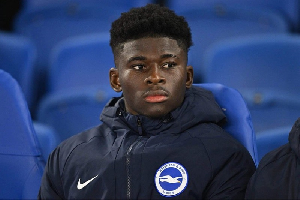The British High Commissioner to Cameroon, H.E. Brian Olley, has said that the ongoing war against Boko Haram is also an economic war.
He made the statement during a meeting of a high-level 25-man UK investment mission to Cameroon on December 8, 2015.
The business leaders were in Cameroon to explore business opportunities.
While lauding the fact that UK companies were looking for investment opportunities in Cameroon, Brian Olley said it was a trickle down of the Cameroon trade forum that took place in the UK last year.
Prime Minister Philemon Yang had led a business delegation, including eight Ministers to London.
Olley said swelling investments, developing the economy and ensuring the welfare of the citizens is another way to fight the upsurge of terrorism in the country.
“So the war on terrorism is also an economic war,” Olley stated.
According to the High Commissioner, fighting terrorism and improving trade are top on his priority list.
“Of course, the two are interlinked. Fighting terrorism costs a great deal in paying salaries of military personnel, paying for the fuel, ammunition and running costs for arms and the hard-edged aspects of warfare. All this a heavy burden on the country’s economy. But as we know, we cannot win a war simply by killing terrorists. In Cameroon, there is a comprehensive plan to help the local populations to re-establish schools, health centers and businesses to help rebuild hope in the future. It is desperation and lack of hope in the future that fuels the terrorists,” Olley said.
He said he hears that Boko Haram is so rich that it buys support from the local population.
“So, our war on terrorism becomes an economic war. How do we win it? By the country’s economy and trade increasing and the state, the individuals, the private sector becoming richer,” Olley said.
The British diplomat said economic development and job creation will not only help to fight terrorism but also help to curb irregular immigration.
“The future of the country depends on its young people because they are full of bright ideas and plans for the future, which are the lifeblood of any country that wants to become more successful,” Olley said.
Quoting Prime Minister Yang as having told UK business people to “come to Cameroon, create businesses, makes money, and the role of government is to create conditions in which private enterprise can thrive” Olley noted that the business environment in Cameroon still has challenges.
“The threat of corruption, for example, which often manifests itself as a deliberate slowing down or freezing of dossiers,” Olley said.
The antidote for such corruption, according to Olley, is the Business Coalition Against Corruption which works with the Cameroonian government and the anti-corruption agency CONAC, as well as Transparency International to provide advice and training to companies coming to Cameroon.
To the UK business people, Olley had this to say: “Be realistic in what you are asking for. If your business proposition is so good, then come with the funding. Don’t ask the government of Cameroon to find the money. Bring the investors with you. Look to asking UK Expert Finance to support you. Look at the huge business to business opportunities. Don’t complain about what is not yet in Cameroon.”
Look at what we cannot find at this moment and find ways of providing it. If you want it then, you can be sure thousands of others want it to, Olley further advised.
Asked what is peculiar about UK companies, the diplomat said they would ensure that 90 percent of their workforce is Cameroonian to which they would also provide training.
He added that UK companies have strength of completing projects on time.
According to one member of the delegation, Rebecca Isaacs, the UK companies are interested in investing in the oil, gas, mining, infrastructure, agriculture, transport and energy sectors in Cameroon.
In an attempt to continuously encourage the UK business mission, the Minister Delegate in the Ministry of the Economy, Planning and Regional Development, Abdoulaye Yaouba, said Cameroon is the right place to invest, with access to the over 150 million consumers in and around the Central Africa sub-region.
Yaouba said the business climate is good given that any company that begins business in Cameroon is given a tax gratuity for two years. He said the tax payment procedures have been simplified to make things easy for business people, adding that Cameroon has over a century-old relation with the UK.
Trade exchanges between the two countries represent FCFA 47.74 billion exports and FCFA 56.7 billion imports between 2010 and 2014.
Yaouba reassured that strong measures have been taken to curb corruption in the business environment.
Infos Business of Thursday, 17 December 2015
Source: The Post Newspaper













